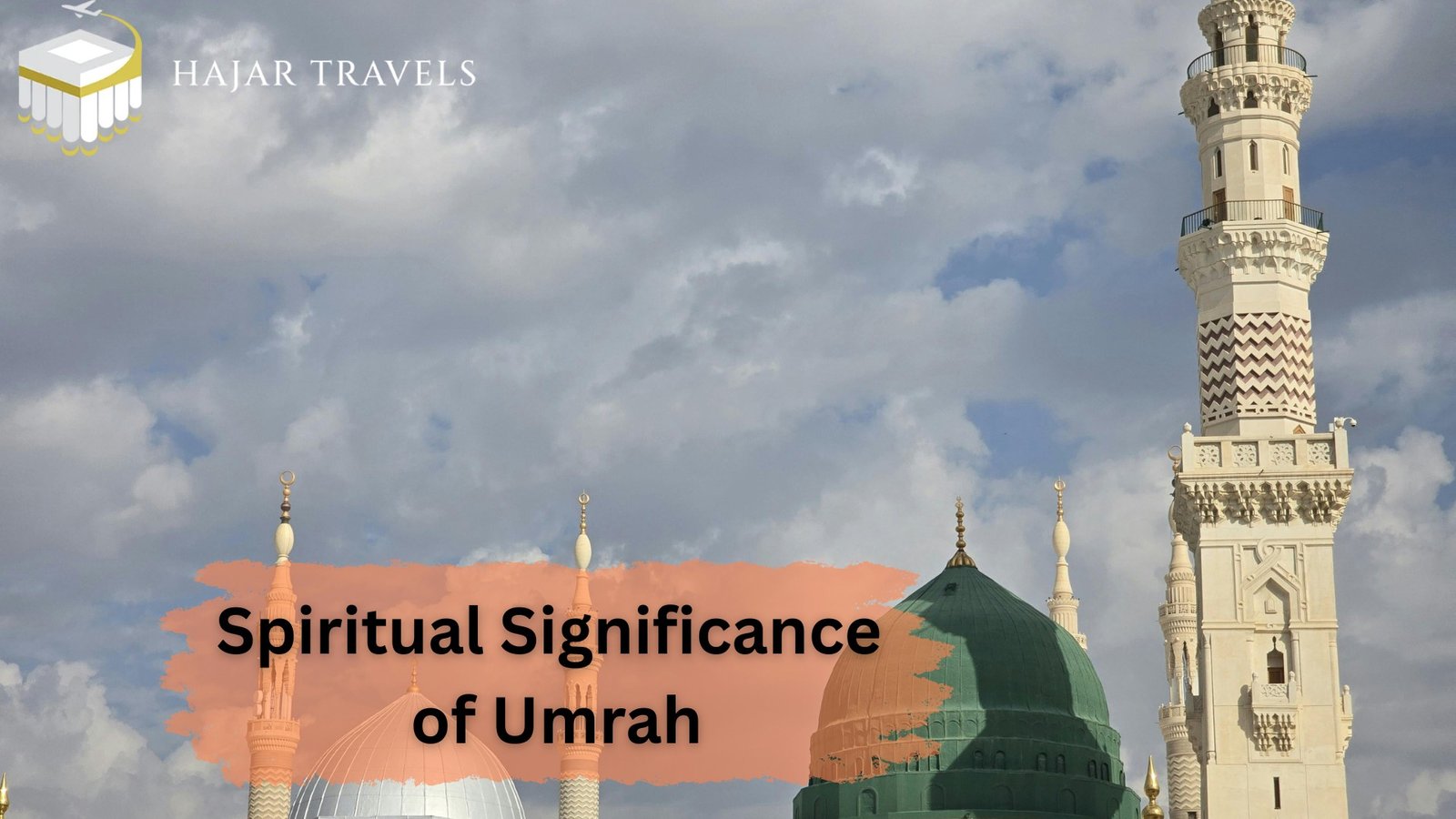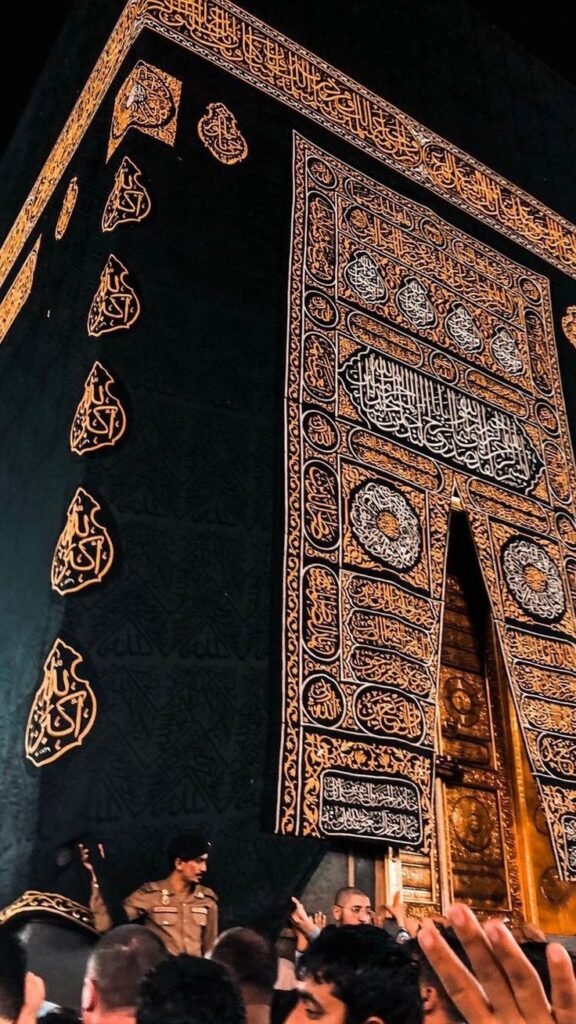The pilgrimage to Mecca is a great spiritual desire to millions of Muslims all over the world. Although Hajj is a compulsory pilgrimage to people who can do so, there is another, non-compulsory, but more than meaningful pilgrimage called Umrah. This pilgrimage of small scale may be made any time of the year and provides one with a special chance of spiritual renewal, forgiveness and closer communication with Allah.
Through this guide the spiritual meaning of Umrah will be explored and the meaning behind the rituals of the pilgrimage will be unpacked and the deep-seated effects it can have in the life of a believer will be revealed. The interpretation of these layers of meaning would make the journey not a sequence of physical activities but an in-depth personal and transformative experience. It is a way to cleanse the soul, to get closer to the Creator and get home with a renewed purpose and faith.
Understanding the Spiritual Significance of Umrah
Umrah 2026 has a spiritual meaning, as it is a very strong form of worship and devotion. As opposed to the Hajj, which one is only supposed to perform at a certain time, Umrah is something that he or she can do whenever he or she feels the urge to visit the Holy Kaaba. This pilgrimage is a spirited act of worship, that is guided by an inner desire to relate to Allah in his holy house. It is also a chance to forget the worldly things and totally devote to worship so that past sins can be forgiven and future guidance prayed. Every ritual, beginning with the first state of Ihram to the last haircut, represents a move out of the ego and into the presence of God and the experience can therefore be described as an extremely cleansing one on the soul.
The Rituals of Umrah and Their Inner Meanings
Physical actions of Umrah are minimal, and every one of them is full of spiritual reminiscence. This is the point of understanding these meanings in order to unlock the full transformative potential of the pilgrimage.
Ihram: Entering a State of Purity
The pilgrimage starts with Ihram, the sacredness that a pilgrim has to enter prior to executing the rituals. This is accomplished by a ritual ablution, donning certain plain clothes (two white unstitched cloths in the case of men) as well as by intending to do Umrah (Niyyah).
The equalizer is the state of Ihram. The plain, naked uniform clothes are deprived of any signs of prosperity, position, nationality. All people are equal in the eyes of Allah and the only difference between them is their piety. This state of physical simplicity promotes the state of mind and spiritual humility and concentration. Pilgrims exercise self-discipline and completely focus their mind on their Creator by avoiding these activities that are allowed, such as wearing perfume or trimming nails. This focus is supported by the constant repetitions of the Talbiyah (“Labbayka Allahumma Labbayk” - Here I am, O Allah, here I am) as a reminder of why the journey was necessary.
Tawaf: Circling the Divine Center
When they arrive at the Grand Mosque, in Mecca, pilgrims execute Tawaf, meaning circling the Kaaba seven times and in a counter-clockwise manner. Kaaba is a plain cube-shaped structure which is a metaphorical house of the god on the Earth and which Muslims pray facing all over the world.
Going around Kaaba is a very symbolic performance of worship. The world of the pilgrim starts to spin around one, Godly center just as the planets spin around the sun. Every circuit is materialization of a life devoted to Allah, and the heart and soul is always oriented to Him. It is one of the points of extraordinary contact and the pilgrim is a part of an unbroken procession of worshippers who have been carrying out this ceremony over centuries. The pilgrim refers to a tradition dating back to the Prophet Abraham (Ibrahim) and the Prophet Muhammad (peace be upon them) by holding on to the Black Stone (Hajar al-Aswad) at the beginning of each circuit.
Sa'i: Reenacting Faith and Perseverance
Pilgrims complete Sa'i, a continuation of Tawaf by walking and rushing seven times between the Saqifah Safa and Marwah. This ritual is a commemoration of the desperate attempt by Hajar, wife of Prophet Ibrahim to find water to her baby boy, Ismail.
The Hajar story is an effective piece of advice in holding onto faith and never giving up. Isolated in a deserted valley she never lost hope and ran up and down between the two mountains in a hope of getting assistance with the full faith in the mercy of Allah. Her attempt was rewarded when the angel Jibril hit the ground, and miraculously opened the spring of Zamzam. Being reminded of her actions by means of the reenactment, pilgrims are encouraged to keep in mind that honest work and uncompromising faith in God will never go unrewarded. Sa'i instructs that believers should continue in their adversities in life because Allah is always ready to assist them.
Halq or Taqsir: The Final Act of Submission
The last ritual of Umrah is the shortening of hair or its cutting. Men can choose to shave their head completely (Halq) or trim their hair (Taqsir) whereas women trim a little bit of their hair.
This is done to signify a new beginning and a breaking of the state of Ihram. Especially the head shaving is a renunciation of ego and vanity, the total submission to the will of Allah. It is a physical symbol of spiritual cleansing, which means that the pilgrim is cleansed of his sins and is now prepared to move on with a clean sheet. This last act is a removal of restrictions of Ihram and the Umrah is complete.
The Lasting Impact of the Journey
The implications of Umrah are far more than when one spends time in Mecca. The experience will be aimed at giving the pilgrim a lasting impact in the heart and the mind of the pilgrim and bringing positive changes in the day-to-day life of the pilgrim.
The excessive emphasis on worship and the non-involvement in this world gives a religious declog. A lot of pilgrims come back to their faith stronger, more humble and feel more appreciated in their relationship with Allah. Patience, gratitude and trust are some of the lessons learnt in the rituals and they are used as guidelines on how to cope with the difficulties of the ordinary life. It is also the feeling of unity and brotherhood experienced with the other pilgrims all over the world which creates a greater allegiance to the whole Muslim world at large (Ummah).
The spiritual meaning of Umrah is an experience to those who have visited this holy place. It is not only a recollection of a journey but an endless inspirational and spiritual powerhouse. The pilgrimage is a good reminder of the reason why one came to this world and a reference of their spiritual journey. The task before every pilgrim is to continue the high level of faith and awareness they got in the course of Umrah many years after they are back home, bringing the light of the Kaaba in their hearts as they lead their everyday lives.
Your Path to a Meaningful Umrah
The Umrah journey is an impressive journey in the life of a Muslim, and it is full of chances of a tremendous spiritual journey. To carefully plan this religious trip means that you should take care and detail so that you can concentrate fully on your worship. We know that at Hajar Travels this is a very serious trip and we are determined to offer you a hassle free and spiritual experience. We will take care of the logistics and you can enjoy the beauty and serenity of your Umrah.



